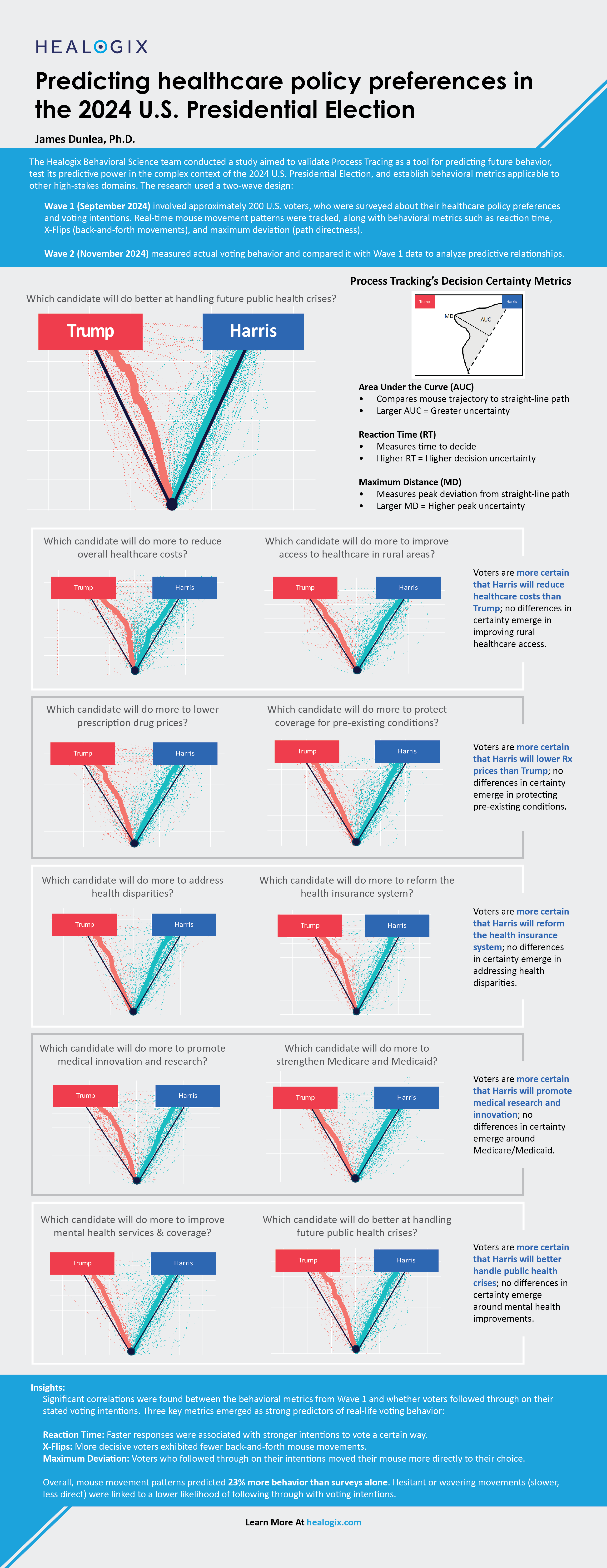December 30, 2024
Human decision-making is complex, especially surrounding high-stake domains such as a presidential election. Traditional methods of assessing decision-making, like self-reports and reaction times, typically cannot account for personal biases and often provides only a single data point for each decision, failing to capture how conflict might evolve and resolve over the course of making a choice. These limitations inhibit the ability to capture the dynamic nature of decision-making, and has made it difficult to test more sophisticated models of decision-making that propose specific temporal dynamics.
To address this, the Healogix Behavioral Science team conducted a two-wave study to explore decision-making conflicts in a high-stakes context: predicting voter behavior in the 2024 U.S. Presidential Election. Using Process Tracing, an advanced form of mouse-tracking, the study tracked real-time cognitive processes to reveal the complexities of voters’ decisions. By recording mouse movements, key metrics such as reaction time, maximum deviation, and X-flips quantified decision conflict, providing deeper insights into the resolution of conflict and the likelihood of follow-through on initial voting intentions.
The Process Tracing approach captured behavioral signals that traditional methods missed, explaining 23% of whether voters followed through on their stated intentions. This case study demonstrates how Process Tracing offers a dynamic, real-time understanding of decision-making, providing valuable predictive power and opening new avenues for studying consumer behavior and decision-making in other high-stakes domains.

James Dunlea, Ph.D.
